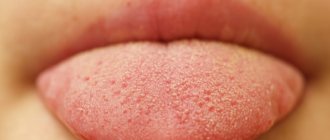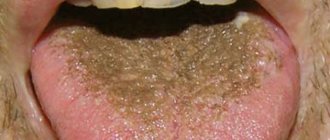According to scientists, people choose their soulmate based on body odor. It is believed that it is the sense of smell that allows you to select a partner with the most suitable set of genes. After all, a person is capable of secreting pheromones: substances that arouse interest in the opposite sex. However, there are situations when a particular odor emanating from the body should be perceived as a distress signal. After all, it can indicate the presence of a fairly serious disease. Doctors say that some diseases have their own “flavor”. Exactly how diseases smell and what you should pay attention to when a new smell appears - in the material AiF.ru.
How does the smell appear?
Fat metabolism disorders are the main reason why a person smells of acetone. What does it mean? During the metabolism of fatty acids, their breakdown products are formed - ketone bodies. They are the ones that give off the acetate smell.
Normally, the level of ketone bodies in the body is very low. They are quickly oxidized in the muscles and lungs, releasing large amounts of energy.
If a person smells like acetone, this means that ketones are accumulating in the body. This is observed when there is a violation of carbohydrate metabolism. Ketone bodies negatively affect the acid-base balance in the body. They shift the pH to the acidic side. Doctors call this disorder ketoacidosis. This condition poses a great health risk. Excess ketones have toxic effects on various organs.
The smell of acetone from the mouth of men
Any pathological processes in the body are reflected in the chemical composition of urine. In males, urine may have an acetate odor due to the development of infectious diseases:
- cystitis;
- urethritis;
- pyelonephritis;
- prostatitis.
When the prostate gland is infected by bacteria, the urine becomes cloudy and emits a strong chemical odor. Having discovered such changes in the body, a man should consult a doctor - a urologist, andrologist or venereologist.
One of the reasons why an adult man’s mouth may smell like acetone is the development of a malignant tumor. Halitosis occurs when the tumor is localized in the area of the bladder, prostate gland, or kidney.
A change in the composition and smell of urine does not always indicate a pathological process in the body. An acetone odor may emanate from the mouths of adult men and women after eating spices or taking certain synthetic nutrient supplements.
Possible reasons
What disease causes a person to smell of acetone? The accumulation of ketones can occur with various ailments. Most often, ketoacidosis develops against the background of the following pathological conditions:
- diabetes mellitus;
- pathologies of the liver and kidneys;
- disorders of the thyroid gland;
- infectious diseases;
- deficiency of carbohydrates in food;
- long fasting.
Next, we will consider in detail the above diseases and methods of treating them.
During which diseases does it appear?
Various endocrine pathologies lead to the appearance of the smell of acetone in humans, including those associated with pancreatic dysfunction (for example, diabetes mellitus); problems with the digestive system, impaired functioning of the kidneys and liver; infection by bacteria, microbes and viruses and others. It has been established that an increase in the level of acetone in urine and blood, the smell of acetone appears in diseases such as:
- ketoacidosis coma;
- intoxication of the body;
- diabetes;
- acetonomy syndrome;
- diseases of the thyroid gland (for example, hyperthyroidism, a complication of diffuse toxic goiter);
- renal failure, pyelonephritis;
- liver failure;
- liver injury, hepatitis, liver cirrhosis, cholecystitis;
- rapid dehydration due to intestinal infections.
Diabetes
Why does a person's breath smell like acetone? Most often this is associated with diabetes. With this disease, the patient has reduced production of insulin by the pancreas. This hormone is necessary for the processing and absorption of glucose, which serves as a source of energy for the body. Insulin deficiency leads to serious consequences. Unsplit glucose is no longer absorbed by tissues. The body has to take energy from proteins and fats. Active breakdown of lipids occurs, which causes excess ketones.
If a person with diabetes smells of acetone, this is an alarming sign. Such symptoms indicate a decompensated form of the pathology, which is difficult to treat. In severe cases, the patient falls into a ketoacidotic coma. This is a life-threatening condition.
Diabetic ketoacidosis is accompanied by other symptoms:
- thirst;
- frequent and excessive urination;
- severe weakness;
- drying of mucous membranes and skin;
- drowsiness;
- nausea and vomiting;
- lethargy;
- headache.
Ketoacidosis in diabetes is treated in a hospital setting. If the patient is in a coma, he is placed in the intensive care unit. Patients are given infusion solutions, this helps eliminate metabolic disorders. The optimal daily dosage of insulin is selected for the patient. Therapy is carried out under the control of the level of sugar and ketone bodies in plasma and urine.
Causes of unpleasant sweat odor
July 24, 2022
Sweating is natural for a person; moreover, it is vital. However, this completely normal process and its consequences can from time to time significantly darken our lives. Wet spots on clothes and an unpleasant smell can ruin a person’s mood or impression for a long time.
We can't help but sweat. Normally, healthy people produce sweat constantly, however, at different rates and in different volumes. On average, at a comfortable temperature, an adult excretes about 500 ml per day. sweat, and in hot weather up to 10 liters, and even more.
Why do we sweat
- sweating ensures the maintenance of normal body temperature, prevents overheating of the body, that is, it performs the function of thermoregulation. Sweat evaporates from the surface of the skin, cooling the entire body during the evaporation process. This happens when the ambient temperature rises (it’s hot outside or indoors), or when the body temperature rises (physical activity, fever due to infectious diseases).
- a number of metabolic products and toxic substances are eliminated with sweat, thereby realizing the excretory function of sweating.
- in areas of the body where the skin is devoid of fatty glands, the sweat glands “take over” their function. Thus, it is sweat that moisturizes the skin of the palms and feet, ensuring the preservation of its elasticity, performing a protective function.
- a separate type of sweating is psychogenic, occurring as a response to a stressful situation (excitement, fear).
It is interesting that during thermoregulatory sweating, the entire skin of the body is covered more or less evenly with perspiration, but during stress, only local areas of the skin are moisturized, usually the palms, armpits, feet, and forehead.
Where does sweat smell from?
Sweat itself is practically odorless; what we mean by the smell of sweat, in fact, is not it. A specific aroma appears as a result of the activity of bacteria that normally live on the surface of the skin, which, feeding on the protein and fatty components of sweat, decompose these organic substances into unsaturated fatty acids and ammonia, which are responsible for the unpleasant odor we perceive. The higher the bacterial population, the more pronounced the odor will be. In addition, the intensity of sweating is influenced by certain lifestyle features and habits.
- Nutrition
Seasonings that give food a spicy taste (hot pepper, mustard, garlic, onion, ginger, horseradish) increase heat transfer from the body and stimulate sweating and give sweat a sharper and more unpleasant odor.
Eating pork and beans also gives sweat a very unpleasant odor.
Products containing caffeine and theobromine (coffee, tea, chocolate, cocoa, Coca-Cola), being stimulants, have a similar effect.
- Bad habits
Alcohol, nicotine, and synthetic drugs disrupt the balance of the thermoregulation system and promote inappropriately profuse sweating.
- Cloth
Clothing made from fabrics with low breathability (polyester, nylon) prevents the evaporation of moisture from the surface of the body, further promoting sweating.
– Hygiene
The presence of hair in the armpits slows down the process of sweat evaporation from the surface of the skin and contributes to the persistence of an unpleasant odor for a longer period of time.
- Physical activity
Insufficient physical activity and excess weight reduce resistance to physical activity, causing profuse sweating even with minimal exertion.
– Mental stability
Prolonged nervous tension, emotional instability, and frequent experiences of stressful situations are often the only cause of sweating.
If a person is healthy and does not neglect the rules of hygiene, the smell of his sweat will not be fetid or repulsive. A specific, often unpleasant odor may accompany certain diseases.
A change in the usual smell or amount of sweat may be the first signal of the onset of the disease.
In the past, doctors relied on the smell of sweat to make a diagnosis. Thus, a person with rubella smells of freshly plucked feathers, typhus is accompanied by the aroma of warm rye bread, and diphtheria smells sweetly and cloyingly. The smell of acetone or the aldehydic smell of pears can appear with diabetes. With kidney pathology, the smell of ammonia is added. An acetic, sour smell is a companion to tuberculosis. If there is a lack of vitamin D in the body, sweat also acquires a sour smell. The smell of cooked egg whites or sulfur indicates problems with the stomach or intestines. Sweat with the smell of chlorine or fresh fish is possible with serious liver diseases.
A sudden change in smell or amount of sweat is dangerous to ignore; be sure to consult a doctor to clarify the reasons for such changes.
How to reduce the intensity of sweat odor.
- Shower twice a day
- Change underwear and other clothing that has been dampened with sweat every day.
- Choose clothes made from materials with high breathability.
- Limit the consumption of salt, spices, caffeine, and alcohol.
- Avoid stress and anxiety whenever possible. You may need to use sedatives of herbal origin (based on valerian, motherwort).
- The problem of sweating can be radically solved by injecting botulinum toxin into the armpit area; the work of the sweat glands at the injection site will be blocked for up to six months, after which it is necessary to repeat the procedure.
- Using deodorant or antiperspirant.
The mechanism of action of these drugs is radically different.
The deodorant will not affect the process of sweating and the amount of sweat produced will not change, but the deodorant contains antibacterial components that reduce the number of bacteria, as a result, less odorous products of their vital activity are formed. Also, the composition includes aromatic compositions.
The effect of using deodorant is temporary, since bacteria quickly restore their population, and the application of the product must be repeated again and again.
An antiperspirant will reduce the amount of sweat produced but will not affect the bacteria living on the skin. The effectiveness of an antiperspirant is determined by the presence of aluminum salts in its composition, which, when applied to the skin, cause a narrowing of the excretory ducts of the sweat glands, which prevents sweating, and the surface of the skin treated with the product remains dry.
Liver diseases
If a person smells of acetone when breathing, this may indicate liver pathology. It is in this organ that the process of breakdown of fatty acids and the formation of ketone bodies occurs. When liver cells are damaged, lipid metabolism is disrupted. This leads to the accumulation of ketones.
Most often, ketoacidosis occurs with hepatitis. Liver inflammation is accompanied by the following symptoms:
- yellowing of the mucous membranes and whites of the eyes;
- skin itching;
- a feeling of heaviness on the right under the ribs;
- fatigue;
- nausea;
- poor appetite.
The patient is prescribed hepatoprotectors, antiviral drugs, as well as a diet limiting spicy, salty and fatty foods.
Other options
As soon as your body odor has changed, turning into something intolerable, you should visit a doctor as soon as possible. After all, a different smell can indicate various pathologies, some of which are quite difficult to treat.
| Body odor | Possible disease |
| Fish | Metabolism problems |
| Putrid or sweetish | Diphtheria |
| Sheep wool (wet) | Adrenal gland disorder |
| Hydrogen sulfide | Ulcer, dyspepsia |
| Rotten Meat | Oncological problems |
| The smell of old age | Problems with hormonal levels |
| Rotten apples | Pre-hypoglycemic coma (requires immediate hospitalization) |
Renal pathologies
Why does a person's body smell like acetone? This may be due to kidney disease. With nephrosis, metabolism is disrupted. As a result, the excretion of ketones through the kidneys increases. The acetate odor comes from the patient's urine and sweat.
Nephrosis is a disease accompanied by degenerative changes in kidney tissue. The signs of pathology are as follows:
- increased thirst;
- weakness;
- swelling of the face and limbs;
- decreased amount of urine;
- joint pain.
Without treatment, this disease can lead to kidney failure. Usually a person smells of acetone in the early stages of the disease. As the pathology develops, an ammonia smell appears. This indicates a significant deterioration in kidney function.
The patient is prescribed a diet with a high protein content in food and limited salt and water. Corticosteroids and diuretics are indicated.
Thyroid dysfunction
The appearance of a ketone odor may be one of the signs of thyrotoxicosis. With this pathology, the thyroid gland produces an excess amount of hormones. This leads to the following symptoms:
- severe weight loss;
- bulging eyes;
- enlargement of the front of the neck (in severe cases, a goiter appears);
- tachycardia;
- nervousness;
- excessive sweating and feeling hot;
- fatigue;
- tremor of the limbs.
Why does a person smell like acetone with thyrotoxicosis? Thyroid hormones stimulate the fat burning process. Their excess leads to accelerated lipid metabolism. As a result, the patient loses a lot of weight, and ketone bodies accumulate in his body. This is what causes the smell.
A patient with thyrotoxicosis needs to take iodine-based medications. After normalization of the thyroid gland, the unpleasant odor disappears.
What causes the smell of ammonia in the nose?
A smell in the nose can appear due to various reasons, which implies a variety of mechanisms for the occurrence of this symptom. We point out the fact that the feeling of acetone in the nasal cavity is not a problem, but a consequence of the presence of some pathology. The sensation of acetone and ammonia can be caused by many ailments, which we will discuss below.
The first mechanism of action is associated with the development of pathogenic microflora in the nasal cavity. The human mucosa is populated by an abundance of microorganisms. While the immune system is strong, it easily restrains the growth of our single-celled “friends”, preventing them from growing. But when the immune system fails, bacteria begin to actively multiply, producing a huge amount of their own waste products into the nasal cavity. Many of them may smell unpleasant.
- If the cause of the unpleasant aroma lies in bacteria, then both you and those around you will feel this smell in your nose;
- If the smell is heard only by you, but others cannot hear it, then there is a disorder of smell. There are many reasons: injuries, abuse of vasoconstrictors, colds, acute respiratory viral infections with a runny nose, and so on.
Acetone breathing from the nose appears in another case - when the concentration of acetone in the blood increases above normal. This occurs only in about 10% of cases, and we will talk about the reasons for this phenomenon further. Most often, when a person complains of the smell of ammonia from the nose, the doctor suspects diseases of the nasal cavity (80%) and oral cavity (10%).
Cases have been recorded when the smell of acetone does not haunt a person all the time, but only in certain situations or at a specific time of day. And sometimes this is nothing more than a hallucination - with brain damage and some mental illnesses this is possible.
When we are talking about a child, it is possible that a foreign body could get into the nose and the body reacts to this aspect in this way. Actually, this can also happen with adults.
We recommend reading: Snot on the back wall of a child.
Infections
If a person smells of acetone on their body, this may be a sign of infectious diseases. Such pathologies are accompanied by severe intoxication of the body. The ketone odor usually appears during the acute stage of the disease, when the patient has a sharply elevated temperature.
Most often, ketoacidosis is observed with rotavirus infection. This disease is commonly called “stomach flu”. It is most often transmitted through dirty hands, less often through airborne droplets. Signs of infection with rotavirus are as follows:
- sore throat (in the first days of illness);
- diarrhea (the color of feces becomes gray);
- fever;
- frequent vomiting;
- severe weakness.
Why does a person’s body smell like acetone during rotavirus infection? During vomiting and diarrhea, the patient loses a large amount of fluid. In addition, fever is accompanied by severe sweating. This leads to dehydration and poor carbohydrate metabolism. Ketone bodies begin to accumulate in the body, which is the cause of the smell.
No special drugs have been developed against rotavirus. Therefore, treatment can only be symptomatic. During illness, you should try to drink as much fluid as possible. This will help avoid dehydration and the accumulation of ketone bodies.
Smell test
Doctors have long ago begun to use the unpleasant aroma emanating from the human body as an option for the primary diagnosis of various diseases. After all, a repulsive amber is a clear signal that metabolic processes have been disrupted. This often occurs against the background of the development of certain pathologies.
Question and Answer Is it impossible to cure all people of all diseases? The bacteria that colonize the skin survive the previous colonies that were “healthy”, and the waste products of the new ones begin to smell differently.
Poor nutrition
Sometimes it can be very difficult to determine why a person smells of acetone. After all, the examination does not reveal any pathologies in him. In this case, you need to pay attention to your diet. The cause of an unpleasant odor may be a diet with insufficient amounts of carbohydrate foods.
Quite a few people are into ketogenic diets these days. This diet involves a sharp restriction of carbohydrates and a large amount of fat in the diet.
The keto diet is believed to lead to rapid weight loss. However, such a menu can provoke serious metabolic disorders. With a carbohydrate deficiency, active fat burning occurs. In the process of accelerated lipid metabolism, an excess of ketone bodies is formed, which do not have time to be excreted from the body. These substances negatively affect the tissues of the liver, kidneys and pancreas.
If a person smells of acetone, then he needs to immediately review his menu. Otherwise, it can lead to serious pathologies. An acetate smell signals a severe carbohydrate deficiency. In this case, you need to urgently stop following the ketogenic diet.
It is not uncommon for a person to smell like acetone on their breath during a complete fast. The ketone odor is formed by the same mechanism as in diabetes mellitus. During a long period of fasting, the body begins to use its own fat reserves as an energy source. This releases a large number of ketone bodies. These substances have a toxic effect on organs. Therefore, it is better to avoid starvation diets. Excessively long breaks between meals should also be avoided.
Expert opinion
Mehman Mamedov, professor, doctor of medical sciences, expert of the National Health League:
— The body smells due to various metabolic disorders. For example, due to impaired glucose metabolism, the number of ketone bodies increases and their accumulation on the skin produces an odor. This is typical for decompensated diabetes. Urea odor is end-stage renal failure. The characteristic smell of the skin, as a rule, is a sign of a malfunction of organs associated with metabolism - these are the kidneys, lungs, and liver. Ulcerative-inflammatory skin diseases can also smell.
Ketone odor in children
Acetate odor in children can be caused by the same diseases as in adults. Therefore, the child should be shown to a doctor. It is important to remember that diabetes often begins to develop in childhood.
However, in many cases the odor is not associated with pathology. In childhood, ketone bodies oxidize very slowly. This leads to the smell of acetone. This symptom is often observed during puberty, especially during long breaks in food intake. Sometimes the smell appears in a child during times of stress. Doctors suggest that those children whose mothers abused protein foods during pregnancy are prone to ketoacidosis.
In childhood, acetonemic syndrome is also observed. This pathology is characterized by the accumulation of ketones in the body and an acetate odor from the mouth and skin. The causes of the disease have not been precisely established. Acetonemic syndrome occurs in the form of attacks. Suddenly the child experiences severe vomiting, motor and mental restlessness, and headaches. Then this state is replaced by lethargy and drowsiness. Such children are advised to eat a diet high in carbohydrates and limited in fatty foods. To combat dehydration, infusion solutions are administered. Typically, signs of pathology disappear on their own after the child turns 12-13 years old.
What type of coma causes the smell of acetone?
In almost every case of the development of a coma, patients experience an acetone odor emanating from the mouth or body.
What kind of coma causes the smell of acetone from the mouth:
- alcoholic;
- uremic;
- hepatic;
- diabetic: hyperglycemic and hypoglycemic.
Alcoholic
An acetonemic aroma can be heard from a person with alcohol poisoning. With excessive alcohol consumption, a coma occurs in almost everyone; a small amount of alcohol-containing drinks can cause a coma only in people with absolute ethyl intolerance.
If medical assistance is not promptly provided to a person who has fallen into an alcoholic coma, death is possible.
In a deep coma, the patient is unconscious, reflexes fade, and blood pressure drops. The skin turns blue, the body becomes covered with sticky sweat, and a strong smell of alcohol is felt from the mouth.
Uremic
Adults may fall into uremic coma caused by chronic renal failure. The latter develops against the background of such diseases and disorders as:
- glomerulonephritis;
- pyelonephritis;
- arteriosclerotic wrinkled kidney.
In addition to the acetonic odor from the mouth, these diseases may cause symptoms such as lethargy, weakness, thirst, hoarseness, sore throat, nausea, vomiting, and lethargy.
Hyperglycemic and hypoglycemic coma
With increased glucose levels in the blood serum (more than 3.3–5.5 mmol/l), hyperglycemia develops. Not only people with diabetes are susceptible to the development of hyperglycemic coma; the following reasons for this condition and the appearance of the smell of acetone are known:
- pancreatitis, pancreatic cancer;
- endocrine disorders;
- infection;
- pathologies of the liver, kidneys;
- genetic disorders;
- eating a lot of calories;
- prolonged stress;
- exceeding permissible physical activity.
A precomatose state can be recognized by symptoms such as nausea, weakness, vomiting, rapid breathing, cold lower and upper extremities.
Treatment of hyperglycemic coma involves lowering blood glucose levels by taking insulin.
Hypoglycemic coma can also be accompanied by increased production of ketone bodies. In the acetonemic state caused by hypoglycemia, the level of glucose in the blood serum drops to such low levels that brain tissue begins to experience energy starvation. The glucose level in this pathology is 1.5–2.5 mmol/l.
Hepatic coma
Hepatic coma develops with severe liver damage that depresses the central nervous system. The acetonemic aroma is caused by liver disorders such as toxic degenerative lesions, extensive necrotic processes, and cirrhotic changes in viral hepatitis.
Pathology can be recognized by the following signs:
- increasing lethargy;
- increased sweating;
- disorientation;
- confusion;
- yellowing of the skin.
If you come into close contact with a person who has fallen into a hepatic coma, you can smell the characteristic smell of liver coming from their mouth. The occurrence of acetonemic vomiting cannot be excluded.
Diagnostics
If a person smells of acetone from his mouth or body, this may be a sign of dangerous diseases. It is necessary to undergo diagnostics as soon as possible to identify the cause of ketoacidosis. Which doctor should you visit? First you need to see a therapist. If necessary, the general practitioner will refer the patient to a more specialized specialist.
If ketoacidosis is suspected, the following examinations are prescribed:
- blood test for biochemical parameters;
- urine test for ketone bodies;
- blood test for thyroid hormones;
- Ultrasound of the kidneys and liver.
During the appointment, the doctor also finds out the patient’s dietary habits. After all, ketoacidosis is often triggered by a deficiency of carbohydrates in food.
Nowadays, special glucometers with the determination of ketone bodies are produced for diabetics. This helps to detect signs of ketoacidosis in a timely manner at home.
Smell of a cat
There are situations when a person begins to smell of cat feces. In this case, the body also signals about possible problems. For example, the smell of urea appears when:
- Kidney and liver diseases
- Pathologies of the endocrine system and VSD
- Tuberculosis
- Obesity
- Disturbances in the digestive system
Among the common causes of this “aroma” are kidney problems. After all, if their work malfunctions, the entire body as a whole reacts painfully to this. Moreover, you should understand that the smell of urea in this case will be strong, and it will be impossible to cope with it with improvised means: deodorants do not use this.
The problem develops due to the fact that protein breakdown products are excreted through the sebaceous glands. Doctors in this case talk about uricidosis, which can result from chronic nephritis, pyelonephritis and uremia.
Article on the topic
Fresh breath. How to eliminate bad breath
How to get rid of odor
What to do if a person smells of acetone? You can completely get rid of an unpleasant odor only after eliminating its cause. Therefore, first of all, you need to treat the underlying pathology and avoid too strict diets.
The following recommendations from doctors will also help reduce the odor:
- You should try to consume enough fluid.
- Long breaks between meals should be avoided.
- You should shower regularly and use antibacterial soap.
- Wearing clothes and underwear made from natural fabrics will help reduce sweating.
- It is recommended to use deodorants with zinc and aluminum.
The acetone smell is a rather dangerous symptom that should never be ignored. Timely treatment will help avoid intoxication of the body and damage to organs from ketones.
If the problem is in the nose
Most often, the smell of acetone in the nose is associated with foreign bodies entering the nasal passage.
Moreover, even after the object has been successfully removed, unpleasant sensations may persist for some time.
If the discomfort does not go away for a long time, you need to make sure that there are no wounds on the mucous membrane that could become infected.
- Smells in the nose: causes, possible diseases, treatment methods, reviews
By the way, the second most common reason is damage to the mucous membrane and the development of small foci of infection.
In this case, it is necessary to treat the infection with antiviral or antibacterial drugs. Some of them will have to be taken orally, others are available in the form of a spray and drops.
Remember! One of the reasons that causes unpleasant odors in the nose is ozena: a complex but, fortunately, rare disease.










